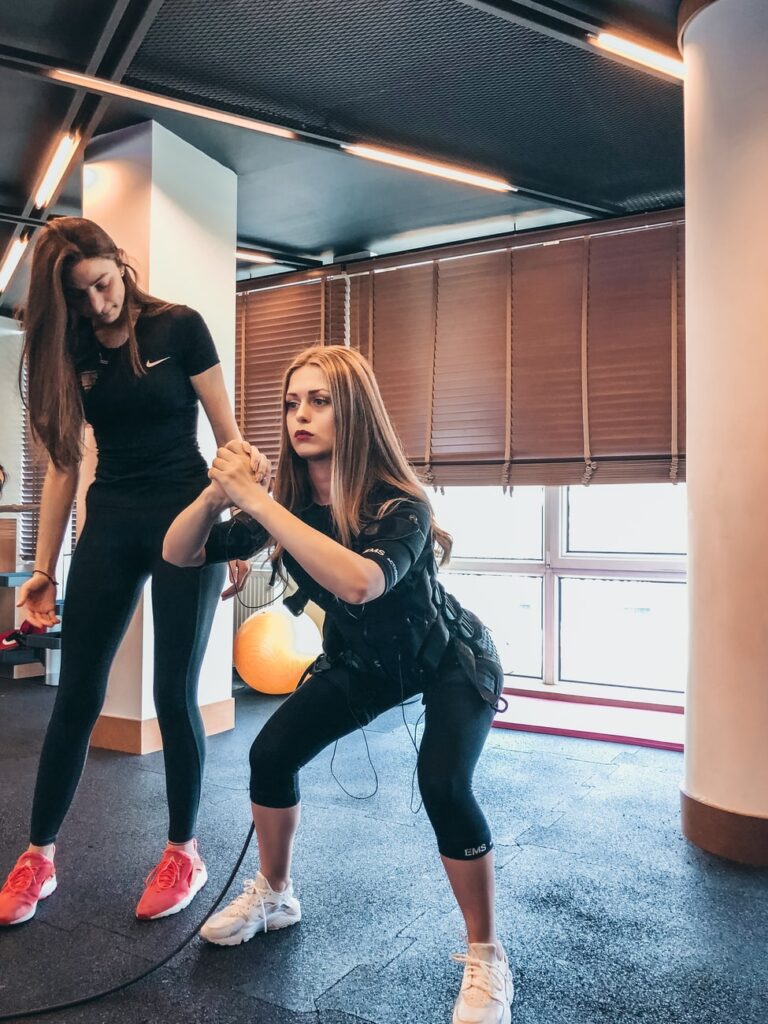
In the last thirty hours or so, I’ve gone to a BJJ class, lifted weights twice (and hit a personal record on my back squat by ten pounds!), and had a dry-needling session where I’m finally working on chronic problems instead of acute injuries. It’s a lot of time and I’m pretty tired, because I’m doing this on top of catching up at my day job after being out for a long weekend and trying to also maintain some actual leisure time. Let me tell you though, after decades of not truly taking care of my body, the effort has been an absolute gift to myself. I’m tired, yes, and I am definitely sore sometimes. We’ll not even talk about what portion of my budget is devoted to gym and related recovery treatments. But you know what? It’s worth it to take care of myself this way, and it’s worth it for you to take care of yourself this way too. Here are a few reasons why:
Even though I have a lifetime of chronic injuries and pushing myself at the gym mean means muscle soreness, I’m actually in less regular pain now than I’ve ever been. It certainly takes a number of resources to treat underlying problems, but the younger you are when you get started, the more likely you will be to get into better physical shape because your body will be less beat up and more effective at healing itself if given the correct assistance. Prioritizing physical therapy and effective training, and actually getting to the doctors to treat both the big areas of pain and the small, niggling problems, will help you feel better than you thought possible. More, you can reduce your chances of future injury and physical degeneration, and start from a stronger, healthier place when they do start to beat you down. Losing 25% of your capability is a lot less scary and frustrating when you start at 95% instead of at 65%.
My confidence is increased. It’s not just the fact that I know I am less likely to be injured or in pain after going out to do something new and fun, or even just from some mundane task around the house that in the past might have meant a tweaked back and a day or three of suffering. It’s also from knowing what I am now capable of doing. There are physiological reasons why your mood might be improved from exercise and from not being in constant pain, including endorphins and all those good brain chemicals. But even if you don’t really feel those for whatever reason, nobody can take away a personal record at the gym, your conquering of a new skill, or even just the simple knowing of what you’ve already gotten done so far today or this week. Then not for nothing, there are strong indications in medical studies that past emotional and mental pain can cause physical pain, and vice versa. Treating the physical pain and working on making your body function correctly can have enormous effects on healing all of which hurts you, not just that nagging hip injury or can’t-remember-how-long-it’s-bothered-you back pain.
My habit of taking care of myself is becoming fully ingrained. It’s so easy to let slip the 30 minutes we carve out to read an enjoyable book or poke at an interesting hobby, but there’s an obligation to this form of self-care that is more difficult to ignore, especially because it so often involves costs that you must pay or commitments to other people. Prepaid or regular membership and class fees are the kinds of sunk costs that make you feel like you need to show up to the gym. If you can get yourself to take that first step of paying, the next step of actually going is that much less of a struggle. Similarly, fear of failing to keep appointments with doctors, therapists, and trainers (or the penalties associated with not keeping them) can be their own form of motivation. It’s true that we can talk ourselves out of the first steps there, but we can also talk ourselves into them. Besides, one of my favorite recovery modalities is a good massage. Who wants to skip that appointment, especially when it’s for our bodily health and not just some sort of splurge we can make excuses about? And as this area of self-care becomes habitual and even necessary, it’s easier to build the other ones into my life.
As a teen and young adult, I wasn’t very active and I certainly didn’t take care of myself in this way. While I did try to stay somewhat active, I had some significant physical and physical pain-driven limitations, I didn’t work out with goals in mind or at the level I do now. I definitely didn’t do anything near what I do now. What I’ve learned, and what I hope I can show you, though, is that you aren’t stuck with that downhill decline. You can start with one small part of helping your body recover and become more active, no matter how old you are, no matter how much you hurt. And you can go so much further than you believe you can before that start. So what will you do for yourself this weekend?




